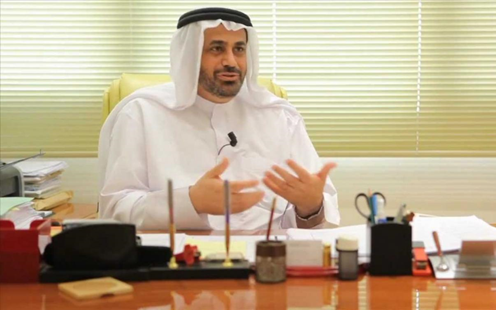On 31 July 2019, the United Nations (UN) Working Group on Arbitration Detention (WGAD), the Special Rapporteur on the promotion and protection of the right to freedom of opinion and expression, the Special Rapporteur on the situation of human rights defenders, and the Special Rapporteur on torture and other cruel, inhuman or degrading treatment or punishment published an allegation letter to the Government of the United Arab Emirates (UAE) citing concern for the continued imprisonment and alleged ill-treatment of Mr. Mohamed Abdullah Al-Roken.
Mr. Al-Roken is a human rights attorney and former president of the UAE Bar Association. He provided legal assistance to victims of human rights violations in the UAE, including human rights defenders and activists who were prosecuted for their peaceful human rights work. Between February 2012 and July 2013, Mr. Al-Roken and 93 other human rights defenders, lawyers, and judges, were arrested, detained, and tried in relation to their work. Along with 64 other defendants, Mr. Al-Roken was charged with “plotting against the government” for signing a petition calling for democratic reforms in the UAE, and received a 10-year prison sentence.
After sentencing, officials transferred Mr. Al-Roken to Al-Razeen prison to serve his sentence. Mr. Al-Roken and other detainees are regularly exposed to both extremely high and low temperatures due to the prison’s location in the desert. Additionally, prison guards reportedly turn off the air–conditioning on purpose to increase the discomfort of the detainees.
On 11 November 2015, prison authorities reportedly played loud music in Mr. Al-Roken’s cell for hours. After ringing the emergency bell in his cell for several hours with no response, Mr. Al-Roken lost consciousness. Security guards took him to the prison clinic, where he was diagnosed with high blood pressure, after which the officers returned him to his cell. The next morning, the loud music started playing again in his cell, which caused him to experience ear pain. The officers again took him to the prison clinic, and he was diagnosed with an ear infection which was aggravated by extreme noise.
Additionally, prison officials systematically deny Mr. Al-Roken access to additional medical care and regularly and randomly place him in solitary confinement without access to daylight for periods ranging from a week up to one month. Furthermore, prison officials regularly prevent Mr. Al-Roken and other detainees from praying and performing acts of worship. Mr. Al-Roken is also regularly denied family visits, phone calls, and access to his lawyer. His family is often not informed of these denials until after they have traveled and waited outside the prison for hours. When Mr. Al-Roken is granted family visits, prison officials subject Mr. Al-Roken to invasive body searches and force him to sit behind a glass barrier during the visit.
Furthermore, prison officials also randomly search Mr. Al-Roken’s cells and confiscate personal items, including books, paper, and pens, as well as food brought by the prisoners’ families. At night, officials violently search, beat, and verbally assault Mr. Al-Roken.
The Working Group and the Special Rapporteurs expressed serious concerns about Mr. Al-Roken’s continued imprisonment, regular placement in solitary confinement, and the allegations of torture and cruel inhuman treatment of Mr. Al-Roken while in prison in connection to his work as a human rights attorney. They called on the UAE’s government to uphold its international human rights obligations as laid out in the Universal Declaration of Human Rights, the Convention against Torture and Other Cruel, Inhuman or Degrading Treatment or Punishment, the Body of Principles for the Protection of All Persons under Any Form of Detention or Imprisonment, and the Nelson Mandela Rules. Finally, the Working Group and the Special Rapporteurs appealed to the UAE government to take all necessary steps to secure the right to the freedom of opinion and expression. The UAE government has not yet sent a response.





